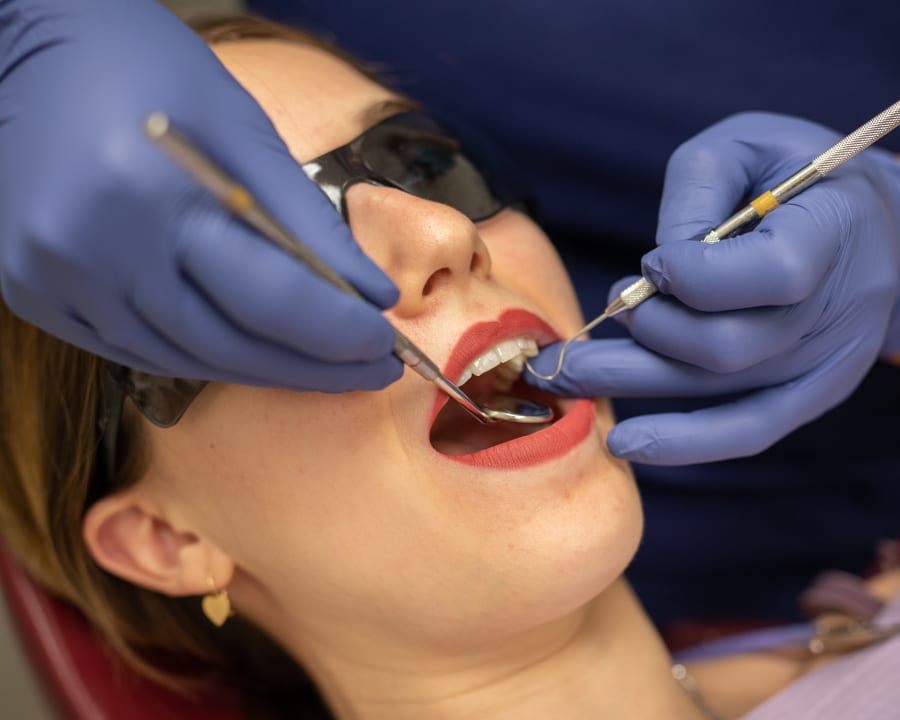
Monitoring Your Oral Health
By scheduling regular dental examinations, your dentist can identify any oral health issues and make a plan to treat them accordingly.
During your exam, your dentist will take a close look at the health of your teeth, gums, jaw and bite, as well as inspect any previously completed restorations for signs of wear and tear.
Oral Cancer Screening
If you develop oral cancer, the cells may be found in the mouth, cheeks, lips, tongue, throat, or sinuses, and early diagnosis allows for timely intervention and the best possible prognosis.
At-Home Dental Care
Brushing your teeth twice a day for at least two minutes and flossing once daily can help clear away bacteria and food particles that can lead to bad breath and tooth decay.
Oral Hygiene & Cleaning
During your hygiene cleaning, your dental hygienist will perform a deep cleaning of your teeth and gums to prevent and treat disease.
To begin, they will use a scaler to remove any tartar and plaque buildup. Next, they will use a polisher and coarse toothpaste to remove any leftover stains or plaque, followed by a thorough flossing of your teeth and gums.
Fluoride Treatment
A regular addition to dental care is fluoride. These treatments help protect their teeth against cavities.
Fluoride, which is a natural mineral, works by strengthening the hard, outer surface of the teeth, also known as the enamel.
While commonly used in dental care for children, our dentists may also recommend this treatment as a preventive measure for adults who are at a high risk of dental issues like decay.



